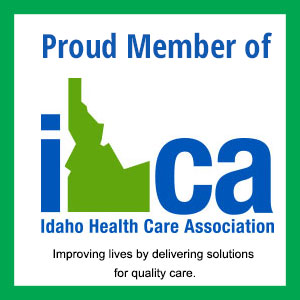
A situation all too common for many couples, yet one for which few are fully prepared, is when one spouse requires a higher level of care than the other. It’s a challenging and often overwhelming situation, but one that many couples navigate with love, determination, and a need for understanding. For couples who have spent a lifetime together, the idea of being separated due to differing care needs can be a heartbreaking situation. Whether it’s due to a chronic condition, progressive illness, or unexpected health event, the need for differing levels of care can introduce a new set of complexities into a relationship. So, what does a person do if their spouse needs more care than they do? Let’s dive into this reality. While the road may be challenging, there is support, understanding, and options to be found along the way.
Understand Your Options
When one spouse needs a higher level of care than the other, couples are often faced with a multitude of options to consider. Each alternative comes with its own set of considerations, from financial implications to the emotional well-being of both partners. Here are some common options to explore.
In-Home Care
Professional Caregivers: Hiring professional caregivers to come into the home can provide the necessary support for the spouse needing care while allowing the other spouse to remain in a familiar environment.
Family Caregiving: If feasible, family members can also take on caregiving responsibilities, either independently or in conjunction with professional caregivers.
Telemedicine and Remote Monitoring
With advancements in technology, some care needs can be managed remotely through telemedicine and remote monitoring systems. This can provide peace of mind for the caregiving spouse and timely access to healthcare for the spouse needing care.
Adult Day Care
Adult day care programs offer structured activities and care during daytime hours. Typically individuals can take advantage of adult day care at assisted living or memory care communities. There are also centers that offer only adult day care. While the individual is at the center, they will benefit by having constant caregiver supervision, friendly interactions, fun activities, meals and snacks, and help with activities of daily living. Adult day care can be a beneficial and affordable option for the caregiving spouse who needs time for work or personal obligations.
Respite Care
Respite care offers short-term stays, that involve overnight stays, in facilities that provide care services. This option allows the caregiving spouse to have a temporary break while ensuring the spouse needing care receives proper support. Respite care is usually provided in an assisted living or memory care facility. While the individual is staying at the community they will have 24/7 caregiver support, meals provided, medication management, help with activities of daily living, fun and engaging activities, and associations with individuals that are of their same age group.
Assisted Living Communities
Couples can move into an assisted living community together, allowing them to stay together and receive the help they need. These facilities offer a level of care that provides assistance with activities of daily living (ADLs) such as bathing, dressing, 24/7 caregiver availability, and medication management. The spouse needing care can receive the necessary support while the other spouse maintains a level of independence. If the spouse is needing memory care, oftentimes the assisted living community will have a memory care home on the same campus or a memory care wing, where the individual can receive the aid that they need.
Where to go from here
Many people wonder, what do I do if my spouse needs a higher level of care than I do? The decision on which option to choose depends on various factors, including the health needs of the spouse, financial resources, personal preferences, and the level of support available from family and community. It’s essential for couples to have open and honest discussions about their wishes, values, and priorities when it comes to long-term care. Seeking guidance from healthcare professionals, social workers, long-term care administrators, and financial advisors can also provide valuable insights and support during this challenging time. The good news is there are many options available that can make the situation more manageable and beneficial for all individuals involved.
Let Us Help You Today!
We welcome the opportunity to speak with you about careers at The Cottages and the care that our residents receive at our Idaho locations. We are experts in assisted living, memory care, respite, adult day care, and have been serving seniors for over 20 years. Our small home-like senior living homes and specially-trained team members offer an atmosphere that promotes the well-being of your loved one.
If you have any questions, would like to tour one of the Idaho assisted living or memory care homes, or speak with one of our licensed administrators, please fill out the form below. Please mention which location(s) you’re interested in.



